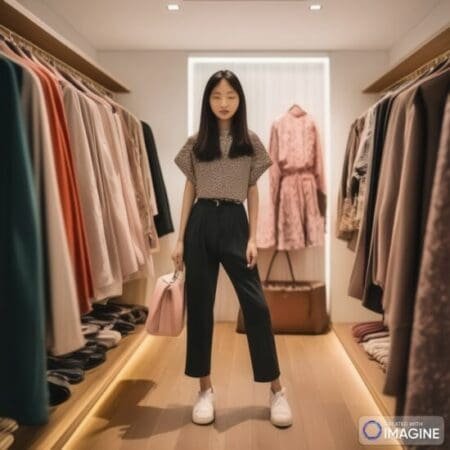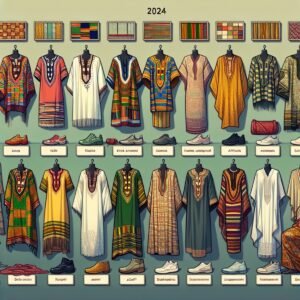
Introduction to Platforms For Selling Used Clothes Singapore
where to sell second-hand clothes? Singapore offers a vibrant market for selling used clothes, with various platforms catering to sellers looking to declutter their closets and earn some extra cash. Whether you are a fashion enthusiast looking to rotate your wardrobe frequently or simply trying to clear out items you no longer wear, selling used clothes in Singapore can be a rewarding experience. Understanding the market trends and consumer preferences is key to maximizing your sales potential.
When delving into the world of selling used clothes in Singapore, it is essential to consider the cultural diversity and fashion sensibilities of the local population. Singaporeans have a penchant for trendy and high-quality items, making it crucial to curate your collection with attention to detail. Additionally, staying updated on popular brands, styles, and sizes can help attract a wider customer base.
Establishing a strong online presence is vital in reaching potential buyers efficiently. Utilizing various selling platforms can broaden your visibility and increase the chances of making successful sales. From dedicated online marketplaces to social media platforms, there are numerous avenues to showcase your preloved items and connect with interested buyers.
Moreover, maintaining transparency in your listings regarding the condition of the clothes, accurate sizing information, and clear, high-quality photographs can boost buyer confidence and encourage purchase decisions. Building a positive reputation as a reliable seller can lead to repeat customers and positive reviews, enhancing your selling experience in the long run. Singapore Second Hand Clothing Sales Selling Clothes Online in Singapore
Top Online Platforms for Selling Used Clothes
- Carousell: With a user-friendly interface, Carousell is a popular platform in Singapore for selling preloved items, including clothes. Sellers can easily upload photos and descriptions of their items, set prices, and connect with potential buyers within the local community.
- Facebook Marketplace: Leveraging the extensive reach of Facebook, the Marketplace feature allows users to list their secondhand clothes for sale. It offers a convenient way to connect with interested buyers and negotiate deals directly through the platform.
- Depop: Known for its focus on fashion and unique style, Depop is a great platform for selling trendy and vintage clothing. Users can create their own online store, showcase their items creatively, and engage with a global community of fashion enthusiasts.
- Refash: Specifically designed for secondhand fashion, Refash provides a curated marketplace for selling preloved clothing in Singapore. Sellers can schedule pickups for their items, and the platform handles the listing, promotion, and selling process on their behalf.
- Vinted: Vinted offers a platform for selling preloved clothes, shoes, and accessories, with a focus on creating a sustainable and eco-friendly shopping experience. Users can list their items for free, set prices, and ship to buyers domestically or internationally.
- ThredUp: As an online consignment store, ThredUp caters to sellers looking for a more convenient way to sell their gently used clothing. Users can request a Clean Out Kit, send in their items, and let ThredUp handle the rest, including pricing, photographing, and listing the items.
- Poshmark: With a social shopping aspect, Poshmark allows users to list and sell their used clothing, shoes, and accessories while engaging with a community of buyers and sellers. Sellers can share their listings, participate in virtual shopping parties, and negotiate prices with potential buyers.
Comparison of Fees and Commission Rates

When choosing a platform to sell used clothes in Singapore, it is essential to consider the fees and commission rates charged by each platform. Here is a comparison of the fees and commission rates of the top platforms:
- Carousell: Carousell is known for its low fees, with no listing fees for basic accounts. They charge a 10% transaction fee for CarouPay transactions.
- Shopee: Shopee charges a selling fee ranging from 0% to 2%, depending on the category of the item. They also charge a payment processing fee.
- Lazada: Lazada has a commission rate ranging from 1% to 20%, depending on the category of the item. They also charge a payment fee for each transaction.
- The Fifth Collection: This platform charges a commission fee of 30% on the final selling price of the item.
- StyleTribute: StyleTribute charges a commission fee of 38% on the final selling price of the item.
When considering which platform to use, sellers should factor in these fees and commission rates to determine which platform offers the best value for their items. It is essential to calculate the total cost of selling on each platform, including listing fees, transaction fees, and commission rates, to make an informed decision.
Tips for Maximizing Sales on Used Clothes Platforms
- Ensure you list high-quality photos of your items from different angles to attract potential buyers.
- Write detailed and accurate descriptions of the items including brand, size, condition, and any flaws.
- Price your items competitively by researching similar listings on the platform.
- Update your listings regularly to keep them fresh and appealing to buyers.
- Utilize keywords in your titles and descriptions to increase visibility in search results.
- Offer discounts for bundled items to encourage buyers to purchase more.
- Provide excellent customer service by promptly responding to inquiries and shipping out items quickly.
- Consider participating in promotional events or sales organized by the platform to boost your sales.
- Share your listings on social media platforms or with friends and family to reach a larger audience.
- Request feedback from buyers to build credibility and improve your seller rating on the platform.
By implementing these strategies, sellers can increase their chances of selling their used clothes quickly and efficiently on popular online platforms in Singapore.
Selling Locally vs. Internationally
When deciding where to sell used clothes in Singapore, sellers need to consider whether to target a local or international market. Each option offers its own set of advantages and considerations.
- Selling Locally:
- Higher Demand: There is a steady demand for second-hand clothing within Singapore due to the environmentally conscious consumer base.
- Faster Transactions: Selling locally usually results in quicker transactions since shipping and customs are not involved.
- Lower Shipping Costs: Local sales often incur lower shipping costs or can even be done through meet-ups, saving the seller time and money.
- Selling Internationally:
- Expanded Market: Selling internationally opens up a larger market and potentially more buyers, increasing the chances of selling items.
- Higher Selling Prices: International buyers may be willing to pay more for unique or branded items compared to the local market.
- Increased Competition: The international market is more competitive, requiring sellers to invest more time and effort into marketing and standing out.
In summary, choosing whether to sell locally or internationally depends on factors such as the type of items being sold, the seller’s willingness to ship items abroad, and the level of competition the seller is comfortable with. Both options have their pros and cons, so sellers should carefully weigh them before deciding where to list their used clothing items.
The Future of Selling Used Clothes in Singapore

The landscape of selling used clothes in Singapore is evolving rapidly, with advancements in technology and changing consumer behaviors shaping the future of this industry. As more people become conscious of the environmental impact of fast fashion, the demand for second-hand clothing is on the rise. This trend is expected to continue growing as sustainability becomes a key concern for consumers.
Online platforms have played a significant role in revolutionizing the way people buy and sell pre-loved items. With the convenience of smartphones and the internet, selling used clothes has never been easier. Platforms like Carousell, Refash, and StyleTribute have capitalized on this trend, providing users with easy-to-use interfaces and efficient payment and delivery options.
The future of selling used clothes in Singapore also lies in the promotion of circular fashion, where clothes are bought, worn, and resold, extending their lifecycle and reducing waste. This shift towards a more circular economy is encouraging more people to invest in quality, timeless pieces that can be passed on or resold after use. As sustainability gains momentum, the resale market is expected to expand, offering more opportunities for individuals to earn extra income while reducing their carbon footprint.
Overall, the future of selling used clothes in Singapore looks promising, with a growing emphasis on sustainability and circular fashion. By embracing online platforms and promoting a culture of conscious consumption, both sellers and buyers stand to benefit from a more ethical and environmentally-friendly approach to fashion.





